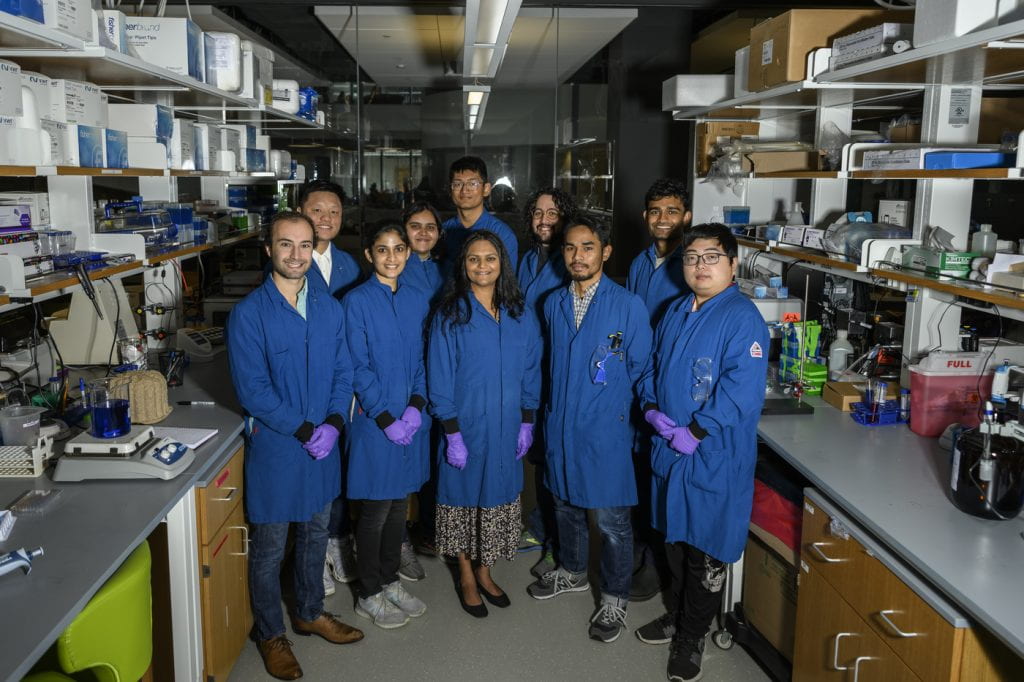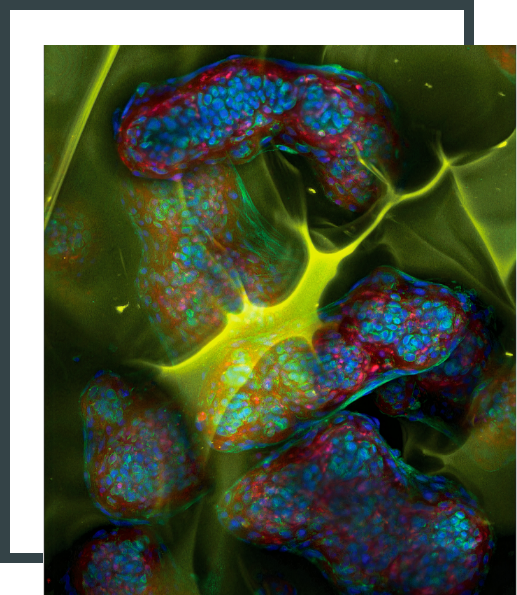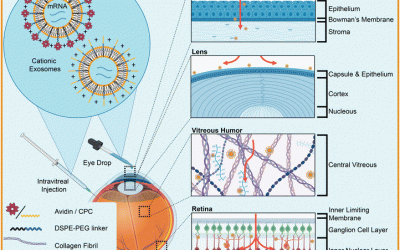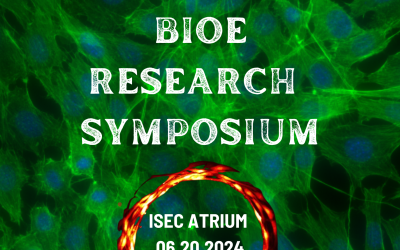Molecular Bioelectrostatics & Drug Delivery Laboratory
Located at Northeastern University’s Interdisciplinary Science and Engineering Complex (ISEC), the Bajpayee Lab works at the intersection of biomaterials design, nanomedicine and translational research. We utilize the body’s internal electric fields to design electrically charged biomaterials using proteins, peptides and cellular materials like exosomes, for targeting difficult to reach tissues for applications in drug delivery and diagnostic imaging.
Negatively charged tissues such as cartilage, meniscus, intervertebral disc, eye, and mucosal membrane, that also tend to be dense and avascular, are ubiquitous in the human body but remain outstanding challenges for targeted drug delivery. Their degeneration is associated with several common diseases that remain untreatable due to a lack of delivery systems that can enable drugs to penetrate the negatively charged matrix and reach their cellular targets. The high negative fixed charge density, however, can be converted from being a challenge to an opportunity by engineering therapeutics at the molecular level to add optimally positively charged domains such that electrostatic interactions can enhance their transport, uptake and retention rather than hindering them. Our lab engineers targeted bioelectrical therapeutics for treatment of diseases affecting such intrinsically charged tissues. We strive to combine basic science with translational research to develop biomedical technologies for unmet clinical needs.
Follow us on Twitter @bajpayeelab | @AmbikaBajpayee

We are supported by

Our Lab News
Congrats to Héctor A. Millán Cotto and Coauthors on the recently published work in Journal of Materials Chemistry B: “Cationic-motif-modified exosomes for mRNA delivery to retinal photoreceptors”
This work demonstrated the potential of milk-derived cationic-motif-modified exosomes for mRNA delivery to photoreceptors in the retina via the topical route. Exo-CPC has the potential for targeting several ocular tissues via the topical route by taking advantage of...
Congrats to Helna on receiving 2023 IBSA Fellowship Award!
Congratulations to Helna Mary Baby on IBSA 2023 Fellowship Award! Helna receives this prestigious award from IBSA which grants her support on the project "Cartilage Targeted Delivery of IL-1Ra in-situ Circular RNA using Cationic-Peptide-Engineered Exosomes for...
We had fun presenting our research at the annual Bioengineering symposium 2024!
Thursday was busy at the BIOE symposium with Tim and Helna's oral presentations and Hengli's talk for the 5-minute thesis competition!






